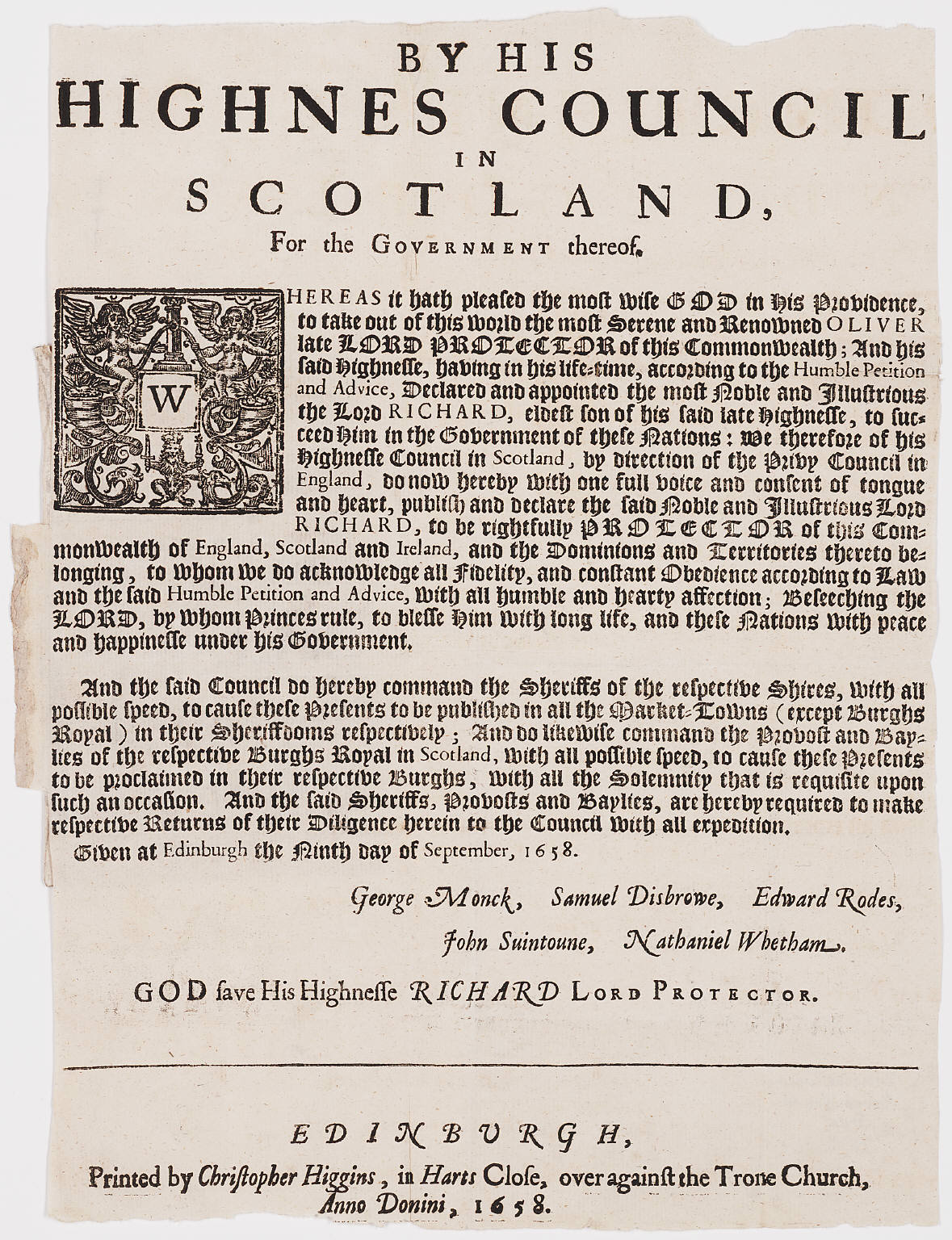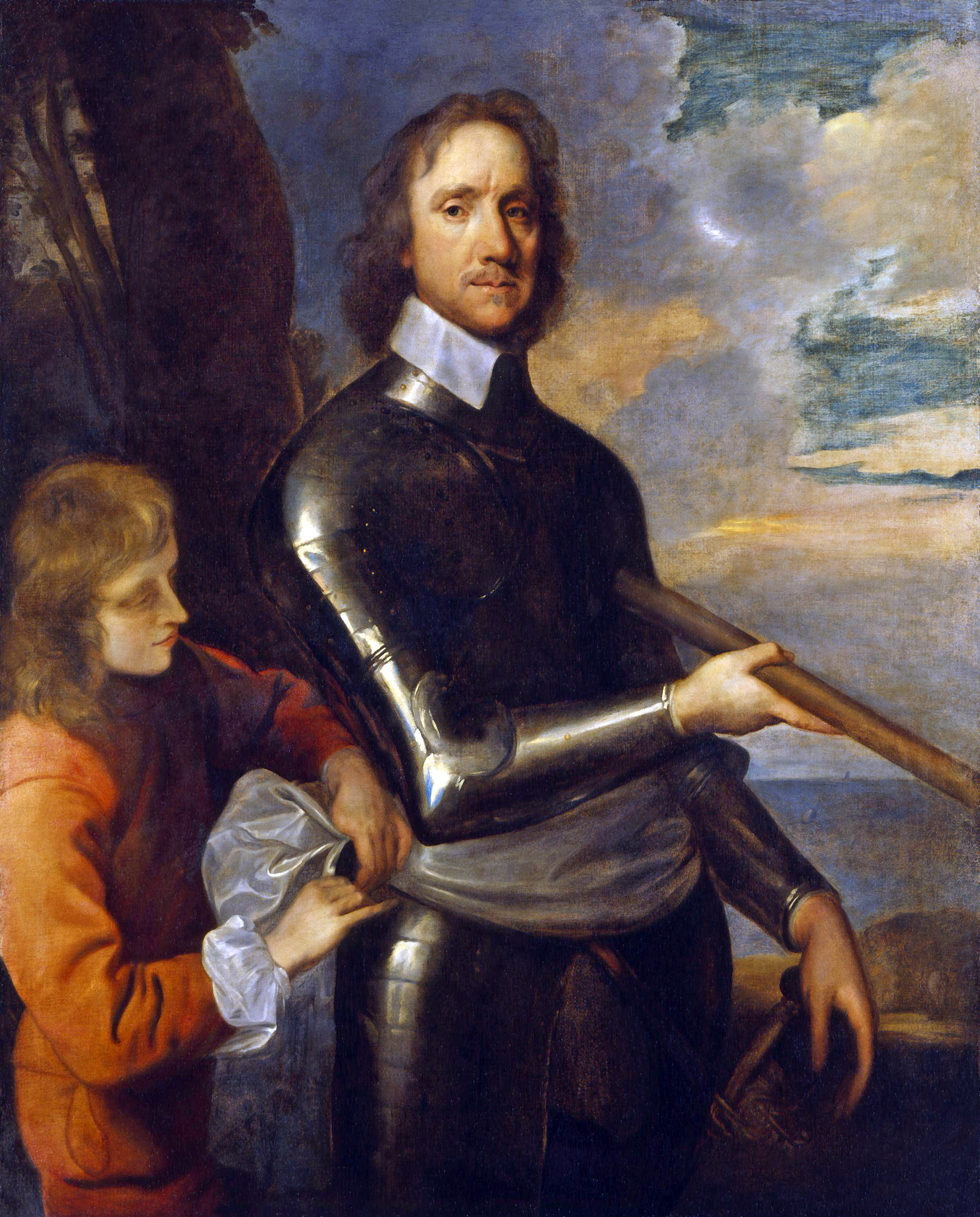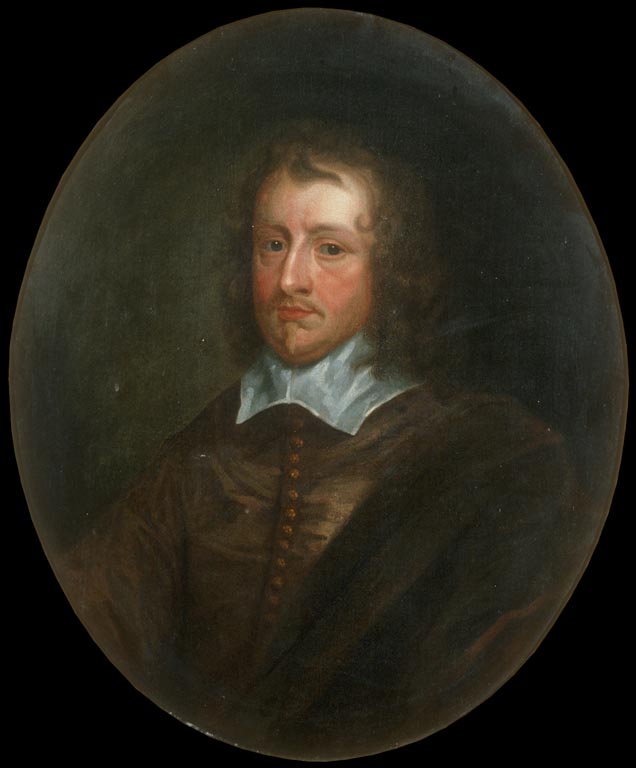|
John Bathurst
John Bathurst (1607–1659) was an English physician. He attended Oliver Cromwell, and was twice Member of Parliament. Life He was the second son of Dr. John Bathurst, of Goudhurst in Kent. He was born in Sussex, his mother being Dorothy, daughter of Captain E. Maplesden of Marsden, a naval officer. In December 1614 Bathurst entered the university of Cambridge as a sizar at Pembroke College, took the degree of B.A. in 1618, and that of M.A. in 1621. In 1637 he obtained the degree of M.D., and in the same year, on 22 December was admitted at once candidate and fellow of the College of Physicians, of which he was afterwards twice censor, in 1641 and 1650. On 1 February 1643 he was incorporated M.A. at Oxford. In 1653, during the First Anglo-Dutch War, he was attending the seamen of the fleet after Robert Blake's prolonged engagement in February of that year. He represented Richmond, Yorkshire, as burgess in the parliament summoned by Cromwell in 1656, and again in Richard Crom ... [...More Info...] [...Related Items...] OR: [Wikipedia] [Google] [Baidu] |
Oliver Cromwell
Oliver Cromwell (25 April 15993 September 1658) was an English politician and military officer who is widely regarded as one of the most important statesmen in English history. He came to prominence during the 1639 to 1651 Wars of the Three Kingdoms, first as a senior commander in the Parliamentarian army and then as a politician. A leading advocate of the execution of Charles I in January 1649, which led to the establishment of the Republican Commonwealth of England, Scotland and Ireland, he ruled as Lord Protector from December 1653 until his death in September 1658. Cromwell nevertheless remains a deeply controversial figure in both Britain and Ireland, due to his use of the military to first acquire, then retain political power, and the brutality of his 1649 Irish campaign. Educated at Sidney Sussex College, Cambridge, Cromwell was elected MP for Huntingdon in 1628, but the first 40 years of his life were undistinguished and at one point he contemplated emigration to ... [...More Info...] [...Related Items...] OR: [Wikipedia] [Google] [Baidu] |
Richard Cromwell
Richard Cromwell (4 October 162612 July 1712) was an English statesman who was the second and last Lord Protector of the Commonwealth of England, Scotland and Ireland and son of the first Lord Protector, Oliver Cromwell. On his father's death in 1658 Richard became Lord Protector, but lacked authority. He tried to mediate between the army and civil society and allowed a Parliament containing many disaffected Presbyterians and Cavalier, Royalists to sit. Suspicions that civilian councillors were intent on supplanting the army were brought to a head by an attempt to prosecute a major-general for actions against a Royalist. The army made a threatening show of force against Richard and may have had him in detention. He formally renounced power nine months after succeeding. Although a Royalist revolt was crushed by the recalled civil war figure General John Lambert (general), John Lambert, who then prevented the Rump Parliament from reconvening and created a Committee of Safety, Lam ... [...More Info...] [...Related Items...] OR: [Wikipedia] [Google] [Baidu] |
17th-century English Medical Doctors
The 17th century lasted from January 1, 1601 ( MDCI), to December 31, 1700 ( MDCC). It falls into the early modern period of Europe and in that continent (whose impact on the world was increasing) was characterized by the Baroque cultural movement, the latter part of the Spanish Golden Age, the Dutch Golden Age, the French ''Grand Siècle'' dominated by Louis XIV, the Scientific Revolution, the world's first public company and megacorporation known as the Dutch East India Company, and according to some historians, the General Crisis. From the mid-17th century, European politics were increasingly dominated by the Kingdom of France of Louis XIV, where royal power was solidified domestically in the civil war of the Fronde. The semi-feudal territorial French nobility was weakened and subjugated to the power of an absolute monarchy through the reinvention of the Palace of Versailles from a hunting lodge to a gilded prison, in which a greatly expanded royal court could be more easily k ... [...More Info...] [...Related Items...] OR: [Wikipedia] [Google] [Baidu] |
1659 Deaths
Events January–March * January 14 – In the Battle of the Lines of Elvas, fought near the small city of Elvas in Portugal during the Portuguese Restoration War, the Spanish Army under the command of Luis Méndez de Haro suffers heavy casualties, with over 11,000 of its nearly 16,000 soldiers killed, wounded or taken prisoner; the smaller Portuguese force of 10,500 troops, commanded by André de Albuquerque Ribafria (who is killed in the battle) suffers less than 900 casualties. * January 24 – Pierre Corneille's ''Oedipe'' premieres in Paris. * January 27 – The third and final session of the Parliament of the Commonwealth of England, Scotland and Ireland is opened by Lord Protector Richard Cromwell, with Chaloner Chute as the Speaker of the House of Commons, with 567 members. "Cromwell's Other House", which replaced the House of Lords during the last years of the Protectorate, opens on the same day, with Richard Cromwell as its speaker. * January ... [...More Info...] [...Related Items...] OR: [Wikipedia] [Google] [Baidu] |
1607 Births
Sixteen or 16 may refer to: *16 (number), the natural number following 15 and preceding 17 *one of the years 16 BC, AD 16, 1916, 2016 Films * '' Pathinaaru'' or ''Sixteen'', a 2010 Tamil film * ''Sixteen'' (1943 film), a 1943 Argentine film directed by Carlos Hugo Christensen * ''Sixteen'' (2013 Indian film), a 2013 Hindi film * ''Sixteen'' (2013 British film), a 2013 British film by director Rob Brown Music *The Sixteen, an English choir *16 (band), a sludge metal band * Sixteen (Polish band), a Polish band Albums * ''16'' (Robin album), a 2014 album by Robin * 16 (Madhouse album), a 1987 album by Madhouse * ''Sixteen'' (album), a 1983 album by Stacy Lattisaw *''Sixteen'' , a 2005 album by Shook Ones * ''16'', a 2020 album by Wejdene Songs * "16" (Sneaky Sound System song), 2009 * "Sixteen" (Thomas Rhett song), 2017 * "Sixteen" (Ellie Goulding song), 2019 *"16", by Craig David from ''Following My Intuition'', 2016 *"16", by Green Day from ''39/Smooth'', 1990 *"16", by ... [...More Info...] [...Related Items...] OR: [Wikipedia] [Google] [Baidu] |
Sir Harry Vane
Sir Henry Vane (baptised 26 March 161314 June 1662), often referred to as Harry Vane and Henry Vane the Younger to distinguish him from his father, Henry Vane the Elder, was an English politician, statesman, and colonial governor. He was briefly present in North America, serving one term as the governor of the Massachusetts Bay Colony, and supported the creation of Roger Williams' Rhode Island Colony and Harvard College. A proponent of religious tolerance, as governor, he defended Anne HutchinsonMoore, p. 318 and her right to teach religious topics in her home which put him in direct conflict with the Puritan leaders in the Massachusetts Colony. He returned to England after losing re-election and eventually, Mrs. Hutchinson was banned from the colony. He was a leading Parliamentarian during the English Civil War and worked closely with Oliver Cromwell. He played no part in the execution of King Charles I, and refused to take oaths that expressed approval of the act. Vane s ... [...More Info...] [...Related Items...] OR: [Wikipedia] [Google] [Baidu] |
Scurvy
Scurvy is a disease resulting from a lack of vitamin C (ascorbic acid). Early symptoms of deficiency include weakness, feeling tired and sore arms and legs. Without treatment, decreased red blood cells, gum disease, changes to hair, and bleeding from the skin may occur. As scurvy worsens there can be poor wound healing, personality changes, and finally death from infection or bleeding. It takes at least a month of little to no vitamin C in the diet before symptoms occur. In modern times, scurvy occurs most commonly in people with mental disorders, unusual eating habits, alcoholism, and older people who live alone. Other risk factors include intestinal malabsorption and dialysis. While many animals produce their own vitamin C, humans and a few others do not. Vitamin C is required to make the building blocks for collagen. Diagnosis is typically based on physical signs, X-rays, and improvement after treatment. Treatment is with vitamin C supplements taken by mouth. Improvemen ... [...More Info...] [...Related Items...] OR: [Wikipedia] [Google] [Baidu] |
Battle Of Worcester
The Battle of Worcester took place on 3 September 1651 in and around the city of Worcester, England and was the last major battle of the 1639 to 1653 Wars of the Three Kingdoms. A Parliamentarian army of around 28,000 under Oliver Cromwell defeated a largely Scottish Royalist force of 16,000 led by Charles II of England. The Royalists took up defensive positions in and around the city of Worcester. The area of the battle was bisected by the River Severn, with the River Teme forming an additional obstacle to the south-west of Worcester. Cromwell divided his army into two main sections, divided by the Severn, in order to attack from both the east and south-west. There was fierce fighting at river crossing points and two dangerous sorties by the Royalists against the eastern Parliamentary force were beaten back. Following the storming of a major redoubt to the east of the city, the Parliamentarians entered Worcester and organised Royalist resistance collapsed. Charles II was able ... [...More Info...] [...Related Items...] OR: [Wikipedia] [Google] [Baidu] |
Sir Richard Fanshawe
Sir Richard Fanshawe, 1st Baronet PC (June 1608 – 16 June 1666) was an English poet and translator. He was a diplomat and politician who sat in the House of Commons from 1661 to 1666. During the English Civil War he supported the Royalist cause and served Charles II of England in battle and in exile. Early life Fanshawe was the fourth and youngest son of Sir Henry Fanshawe, of Ware Park, Hertfordshire and his wife Elizabeth Smythe, daughter of Thomas Smythe, of Ostenhanger Kent and was baptised at Ware on 12 June 1608. His father, who was Remembrancer of the Exchequer, died in 1616. Fanshawe was admitted at Jesus College, Cambridge in November 1623 and was admitted to Inner Temple on 22 January 1626. He travelled on the Continent, and in 1635 was Secretary to the Embassy at the Court of Spain. In 1638, he was Chargé d'Affaires there. He was an accomplished linguist, whose knowledge of "modern languages" like Spanish and Italian is said to have been a great advantage to ... [...More Info...] [...Related Items...] OR: [Wikipedia] [Google] [Baidu] |
William Harvey
William Harvey (1 April 1578 – 3 June 1657) was an English physician who made influential contributions in anatomy and physiology. He was the first known physician to describe completely, and in detail, the systemic circulation and properties of blood being pumped to the brain and the rest of the body by the heart, though earlier writers, such as Realdo Colombo, Michael Servetus, and Jacques Dubois, had provided precursors of the theory. Family William's father, Thomas Harvey, was a jurat of Folkestone where he served as mayor in 1600. Records and personal descriptions delineate him as an overall calm, diligent, and intelligent man whose "sons... revered, consulted and implicitly trusted in him... (they) made their father the treasurer of their wealth when they acquired great estates...(He) kept, employed, and improved their gainings to their great advantage." Thomas Harvey's portrait can still be seen in the central panel of a wall of the dining room at Rolls Park, Chig ... [...More Info...] [...Related Items...] OR: [Wikipedia] [Google] [Baidu] |
Richmond (Yorks) (UK Parliament Constituency)
Richmond (Yorks) is a constituency in North Yorkshire represented in the House of Commons of the UK Parliament since May 2015 by Rishi Sunak, the current Prime Minister of the United Kingdom and leader of the Conservative Party. Constituency profile The constituency presents itself as a safe seat for the Conservative Party, which held it continuously since 1910 (if including the 11 years by the allied Unionist Party from 1918), and in the 2010 general election, Richmond produced the largest numerical and percentage majority for a Conservative, 62.8% of the vote. The Conservative MP and one-time Party leader William Hague held the seat from a by-election in 1989 until he retired from the Commons in 2015. He had held the posts of Leader of the Opposition (1997–2001), Foreign Secretary (2010–2014) and Leader of the House of Commons (2014–2015). His successor Rishi Sunak served as Chancellor of the Exchequer from February 2020 to July 2022 and as Prime Minister from Oc ... [...More Info...] [...Related Items...] OR: [Wikipedia] [Google] [Baidu] |








_Venenbild.jpg)
